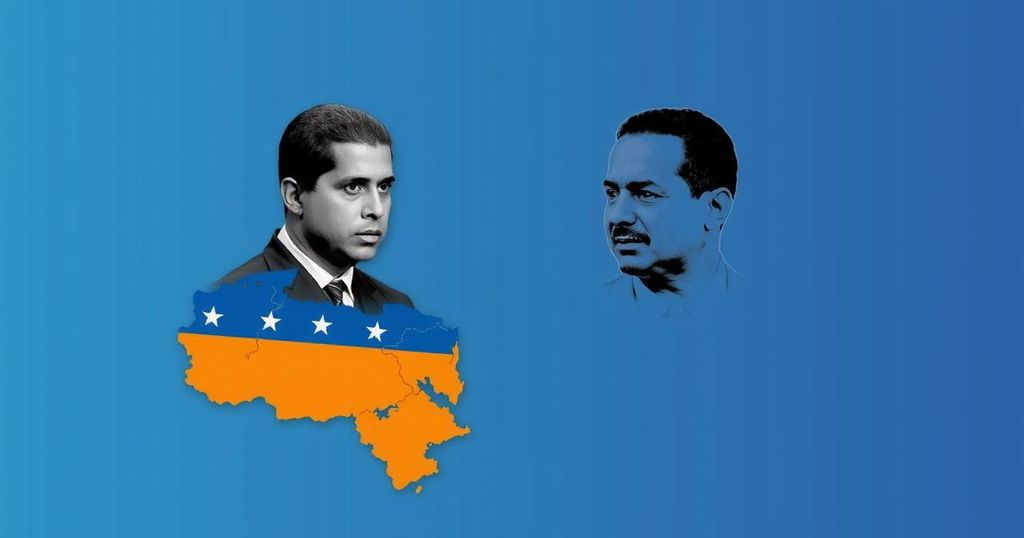U.S. Sanctions Escalate Against Maduro Allies Amid Election Repression

The U.S. has sanctioned 21 more allies of Nicolás Maduro over election repression. Notable officials included are from Venezuela’s corrections and intelligence sectors. The Biden administration recognized opposition leader Edmundo González as the country’s “president-elect.” Former diplomat González claims election victory and has fled to Spain. Existing sanctions against Maduro loyalists raise questions about their effectiveness amidst ongoing government control.
The United States has enacted sanctions against 21 additional associates of President Nicolás Maduro, attributing to them roles in the oppressive actions that followed Venezuela’s contested presidential election held in July. Among those sanctioned are high-ranking officials such as the head of the national corrections agency, the director of an intelligence service, and a key minister within Maduro’s administration. This latest move adds to the extensive list of Venezuelans already facing sanctions, which includes prominent judicial and governmental figures.
Building on these recent sanctions, the Biden administration has formally recognized opposition leader Edmundo González as the “president-elect” of Venezuela. Alongside the sanctions, the U.S. has restricted visas for individuals identified as complicit in the repression following the July 28 election. Despite Maduro’s claims of electoral victory, his administration has not provided verifiable vote counts to support these assertions.
González, who alleged that he won the election by a significant margin, fled to Spain in September amidst an arrest warrant related to vote tally publications. Prior to the recent sanctions, the U.S. had imposed punitive measures against 16 of Maduro’s allies for obstructing the electoral process and perpetrating human rights violations. The effectiveness of these latest sanctions remains uncertain, particularly as Maduro’s loyalists continue to maintain substantial control over Venezuela’s governance. Meanwhile, Venezuelan legislators are deliberating a bill that could categorize economic sanctions as crimes against humanity, paving the way for potential legal actions against supporters of such measures.
The context of this article revolves around the heightened political tensions in Venezuela following the July presidential election, which has been marred by allegations of misconduct and repression. President Nicolás Maduro’s regime has faced significant criticism for its handling of both the electoral process and subsequent civil dissent. As the United States continues to impose sanctions on Maduro’s allies, it aims to pressure the government for democratic reforms and uphold human rights in the region. The ongoing political instability in Venezuela raises questions about the ultimate effectiveness of sanctions on entrenched political regimes and the potential implications for international relations.
In summary, the United States has escalated its sanctions against Venezuelan officials linked to the recent election repression, further amplifying its stance against the Maduro administration. While the recognition of Edmundo González as the opposition leader marks a significant diplomatic gesture, the continued dominance of Maduro’s supporters in government complicates the situation. The discussion surrounding the potential criminalization of sanctions by Venezuelan lawmakers reflects the increasing tensions between the government and international democratic standards.
Original Source: abcnews.go.com







